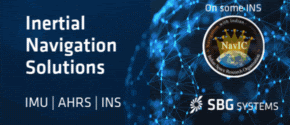| GNSS News | |
GNSS
River Ganges navigation capacity improvement
The Inland Waterways Authority of India (IWAI) is investigating measures to augment the navigational capacity of the River Ganges, under the Jal Vikas Marg project. HR Wallingford (UK), alongside project partners Howe Engineering Projects (India) and PMC Project (India), will undertake a package of river modelling, geomorphology, dredging, engineering and navigation feasibility studies.
GAGAN dedicated to India
On 13th July, 2015, New Delhi, the GAGAN facility was launched by Shri P Ashok Gajapathi Raju, Hon’ble Minister of Civil Aviation in the august presence of Shri R.N. Choubey, Secretary, Civil Aviation, Smt. M Sathiyavathy, Director General, DGCA, Shri R K Srivastava Chairman, AAI and Dr YVN Krishnamurthy, Scientific Secretary, ISRO. On this occasion HMCA handed over the Completion Certificate to the Chairman, AAI.
Speaking on the occasion Secretary, Civil Aviation dwelled upon popularizing the system amongst the neighboring countries and other countries in the catchment area. He also emphasized the need for meeting the end users to further popularizing the system. He further insisted that use of GAGAN services should not only be used for the Civil Aviation but also for broader logistics services so that efficiency and reliability of logistics and other industries are equally benefitted from this technology.
Antwerp airport landings soon to be based on satellite data
Belgocontrol, the agency in charge of safety in the Belgian airspace, will implement a new procedure for the arrival of planes at Antwerp airport from December 2015, reveals the organisation. Planes will land following satellite data instead of ground installation data as of the end of the year. “Belgocontrol will later implement the same procedure in the 4 other airports within its remit,” which are Brussels, Charleroi, Ostend, and Liège airports, they add. One of the advantages of the satellite data technique is that planes can “use landing strips not equipped with ILS installations (Instrument Landing System) when visibility is reduced.” http://brusselstimes.com
GLONASS and BeiDou joint operation
Russian and Chinese global navigation satellite systems are well suited to meeting BRICS members’ civilian needs, chief analyst for GLONASS Union, Andrei Ionin, told Sputnik. “All the studies show that the two systems [can] solve all civilian objectives.” He pointed to the key importance of developing GLONASS within the BRICS framework. The analyst estimated that GLONASS spends $1 billion annually to service its navigation system, arguing that it needs to be offered on the BRICS platform to be commercially viable. Brazil, India and South Africa, along with Russia and China, are the five nations of the BRICS emerging markets, accounting for one-third of the world’s economy and 40 percent of its population. http://sputniknews.com
China adds 2 satellites to Beidou network
China has successfully launched two more satellites adding to 17 already in orbit. Launched from the Xichang Satellite Launch Center in the China’s southwestern Sichuan Province, the two satellites were the 18th and 19th for the Beidou Navigation Satellite system. They were sent into their present orbits by a Long March- 3B/ Expedition-1 carrier rocket 3.5 hours after the launch. http://tech.firstpost.com
ISS Reshetnev building new facility for antennas and feeder devices
Russian satellite manufacturer ISS Reshetnev is building a facility with a total area of more than 19,000 square meters for producing antennas and feeder devices for satellites. The building will house both design departments and production areas. It is constructing the facility within the framework of Russia’s federal target program “Maintenance, Development and Utilization of the Global Navigation Satellite System Glonass for the years 2012 to 2020.” The facility will include workplaces dedicated to thermal and vacuum, vibration and high frequency tests to verify characteristics and the reliability of satellite payload components. www.satellitetoday.com
Tracking Space Junk With GLONASS
Russia and Brazil are considering a joint project that will detect and track space junk orbiting the Earth, Russia’s President Vladimir Putin said at a meeting with his Brazilian counterpart at the sidelines of the BRICS summit. He thanked president of Brazil for agreeing to host two ground stations servicing GLONASS. http://sputniknews.com











 (No Ratings Yet)
(No Ratings Yet)






Leave your response!